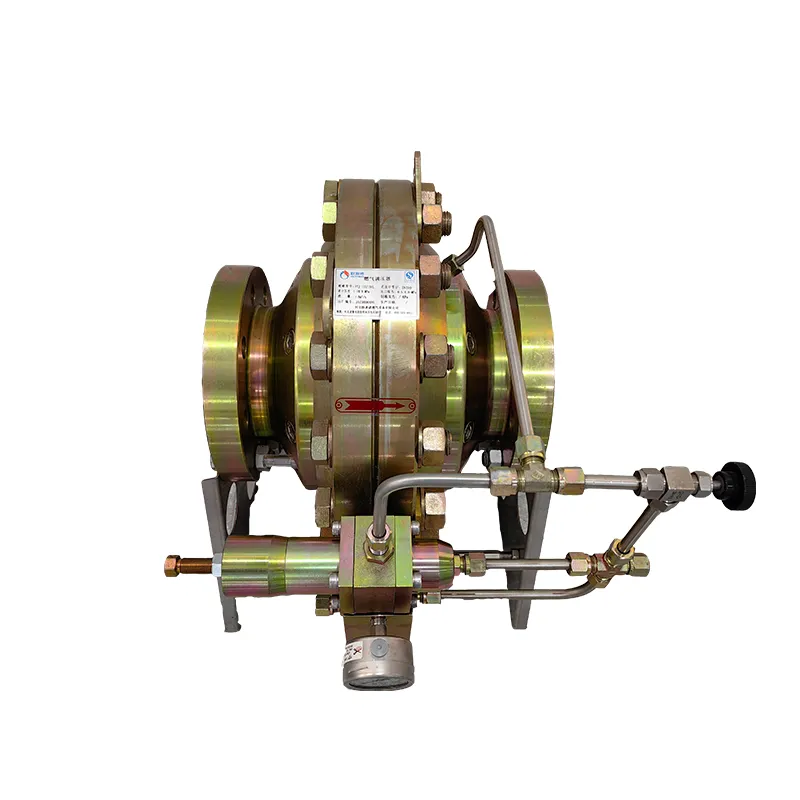
Dec . 26, 2024 22:58
Back to list
صمام الأمان
The Importance of Safety Valves in Industrial Applications
Safety valves are critical components in many industrial processes, providing essential protection against pressure build-up and potential system failures. As industries continue to evolve and equipment becomes more sophisticated, the role of safety valves has become increasingly significant in ensuring the safety and efficiency of operations.
What is a Safety Valve?
A safety valve is a mechanical device designed to automatically release pressure from a system when it exceeds predetermined levels. These valves are typically used in pressure vessels, boilers, pipelines, and other systems where gas or liquid pressure can build up to dangerous levels. The main function of a safety valve is to prevent catastrophic failures that could lead to explosions, ruptures, or leaks, posing serious risks to personnel, equipment, and the environment.
How Safety Valves Work
Safety valves operate based on the principle of pressure differentials. When the pressure within a system reaches a specified limit, the valve opens to release excess pressure, thereby preventing damage. Once the pressure drops back to a safe level, the valve closes automatically. This self-regulating mechanism is crucial for maintaining the integrity of systems under high pressure.
There are various types of safety valves, including spring-loaded, pilot-operated, and relief valves. Each type has its specific application based on factors such as the type of fluid (gas or liquid), the pressure range, and the operational conditions. Understanding the characteristics of each type allows engineers to select the most suitable valve for their specific needs.
Applications of Safety Valves
صمام الأمان

Safety valves are widely used across multiple industries, including oil and gas, chemical manufacturing, power generation, and pharmaceuticals. In the oil and gas industry, for instance, safety valves are essential for protecting pipelines and storage tanks from overpressure situations that could lead to spills or explosions. In chemical plants, these valves help maintain safe operating conditions by preventing the release of hazardous substances.
In power generation, safety valves are integral to steam boilers, where they prevent excessive pressure build-up that can compromise the boiler’s integrity. Their role in pharmaceutical manufacturing is equally critical, ensuring that production processes operate within safe parameters and meet regulatory compliance.
Regulatory Compliance and Safety Standards
Given the potential dangers associated with pressure systems, safety valves must adhere to stringent regulatory standards. Organizations such as the American Society of Mechanical Engineers (ASME) and the American Petroleum Institute (API) have developed guidelines for the design, installation, and maintenance of safety valves. Compliance with these standards is crucial for ensuring the reliability and safety of industrial operations.
Regular testing and maintenance are also essential to the effective functioning of safety valves. Periodic inspections help identify wear and tear, ensuring that valves operate correctly when needed. Training personnel on the importance of safety valves and how to maintain them is equally important for fostering a culture of safety within organizations.
Conclusion
As industries face increasing pressure to operate efficiently and safely, the role of safety valves cannot be overstated. These devices play a vital part in preventing accidents, protecting both human lives and valuable equipment. Investing in high-quality safety valves and ensuring compliance with relevant standards is essential for any organization involved in industrial operations.
Ultimately, the continuous evolution of technology will only enhance the effectiveness of safety valves. Innovations in materials and design will lead to improved performance and reliability, further securing the safety of complex industrial systems. As we move toward a more automated and intricate future, the fundamental principle of safety remains paramount, making safety valves an indispensable component of industrial safety strategies.
Latest news
-
Safety Valve Spring-Loaded Design Overpressure ProtectionNewsJul.25,2025
-
Precision Voltage Regulator AC5 Accuracy Grade PerformanceNewsJul.25,2025
-
Natural Gas Pressure Regulating Skid Industrial Pipeline ApplicationsNewsJul.25,2025
-
Natural Gas Filter Stainless Steel Mesh Element DesignNewsJul.25,2025
-
Gas Pressure Regulator Valve Direct-Acting Spring-Loaded DesignNewsJul.25,2025
-
Decompression Equipment Multi-Stage Heat Exchange System DesignNewsJul.25,2025

